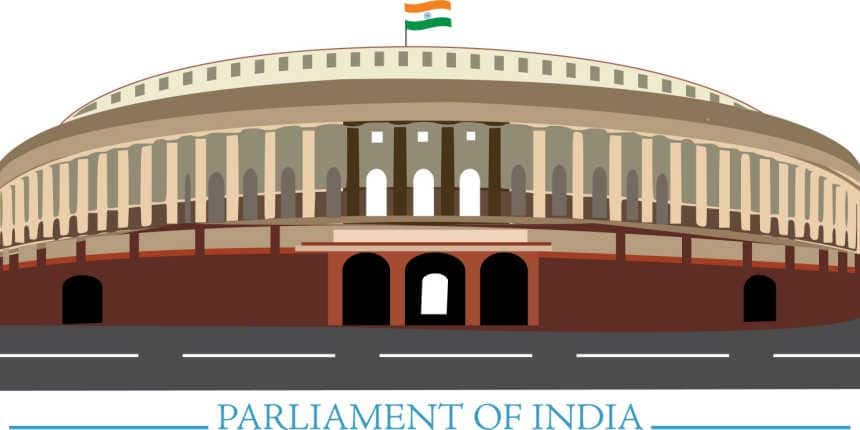MPs Full Form
What is the full form form of MPs?
MPs stand for Members of Parliament. The Rajya Sabha may hold 250 members, but there are now 245 members. Of these, 12 members are nominated by the President and come from a variety of artistic and intellectual backgrounds. The obligations and liabilities of Rajya Sabha members are listed below:
This Story also Contains
- Eligibility Criteria
- Disqualification grounds
- Salary

Passing legislation
Evaluating the performance of the governing party
To approve the government-planned spending
To present the opinions of those in their areas
Making legislation regarding services at the state or national level.
Eligibility Criteria
A few terms must have to satisfy to become a Member of Parliament of the Lok Sabha
Candidates must be Indian citizens.
Candidates must not be younger than 25 years old.
Candidates should be a sound person
Candidates must not be sentenced to two or more years in jail by the court.
Candidates must be registered to vote in any Indian by the parliamentary district.
A recognised political party candidate must have one proposer from their district in order to be nominated.
Candidates running alone require 10 proposers.
Candidates must provide a security deposit of 25000 rupees.
Disqualification grounds
Holds any profit under the Indian Government (other than an office permitted by the Parliament of India by law)
Is mentally unstable
Is bankrupt
Has lost his Indian citizenship
Is prohibited from doing so by any law passed by the Indian Parliament
Has a record of bribery convictions
Has received punishment for engaging or advocating in social offences like sati, dowry, or untouchability
Has been fired due to corruption or state disloyalty
Salary
India pays approximately 2.7 lakhs rupees monthly to Members of Parliament, it includes the pension given to the to ex-MPs. All the pension and monthly salaries of MPs are governed by the Member of Parliament Act, of 1954. The act is in accordance with constitutional requirements, according to which members of either House of Parliament are entitled to earn salaries and allowances from time to time. A joint committee of both houses oversees the regulations controlling salary, allowances, and benefits including housing, telephone access, daily allowance, etc.
Frequently Asked Questions (FAQs)
Member of Parliament’s term is five years from the date of appointment.
According to article 81 of the Constitution of India 1949, the maximum strength of MPs in Lok Sabha can be 552.
The first set of Members of Parliament were elected on 17 April 1952.
Its legislative responsibility is passing Indian laws in the Lok Sabha. And its oversight responsibility is to guarantee that the executive, government carries out its responsibilities successfully.
A Member of Parliament represents the citizens of their electoral district in the legislature. Members of the upper house frequently go by different names in many nations with bicameral parliaments, so MPs solely apply to lower house members in those legislatures.
